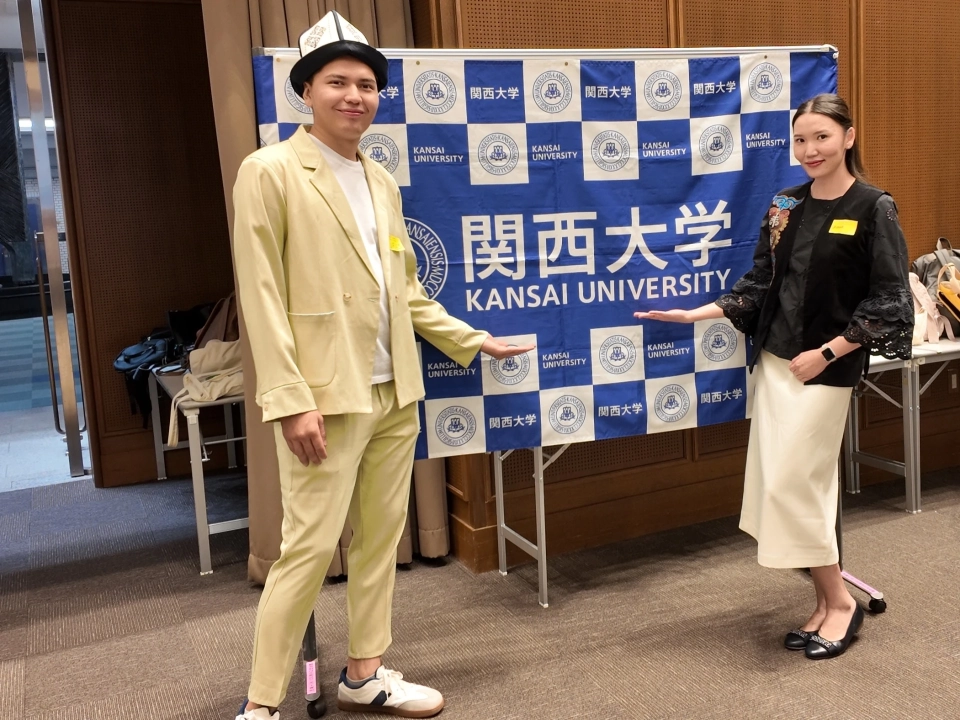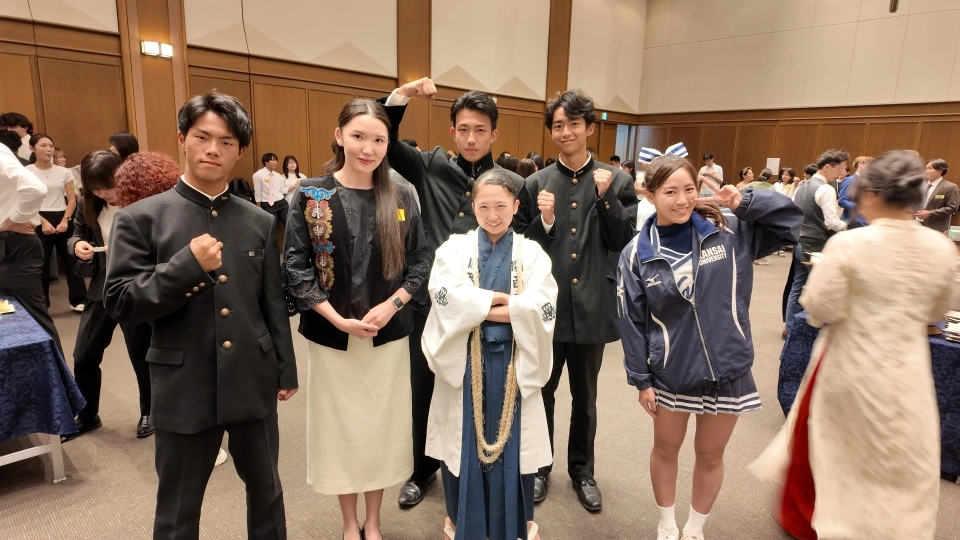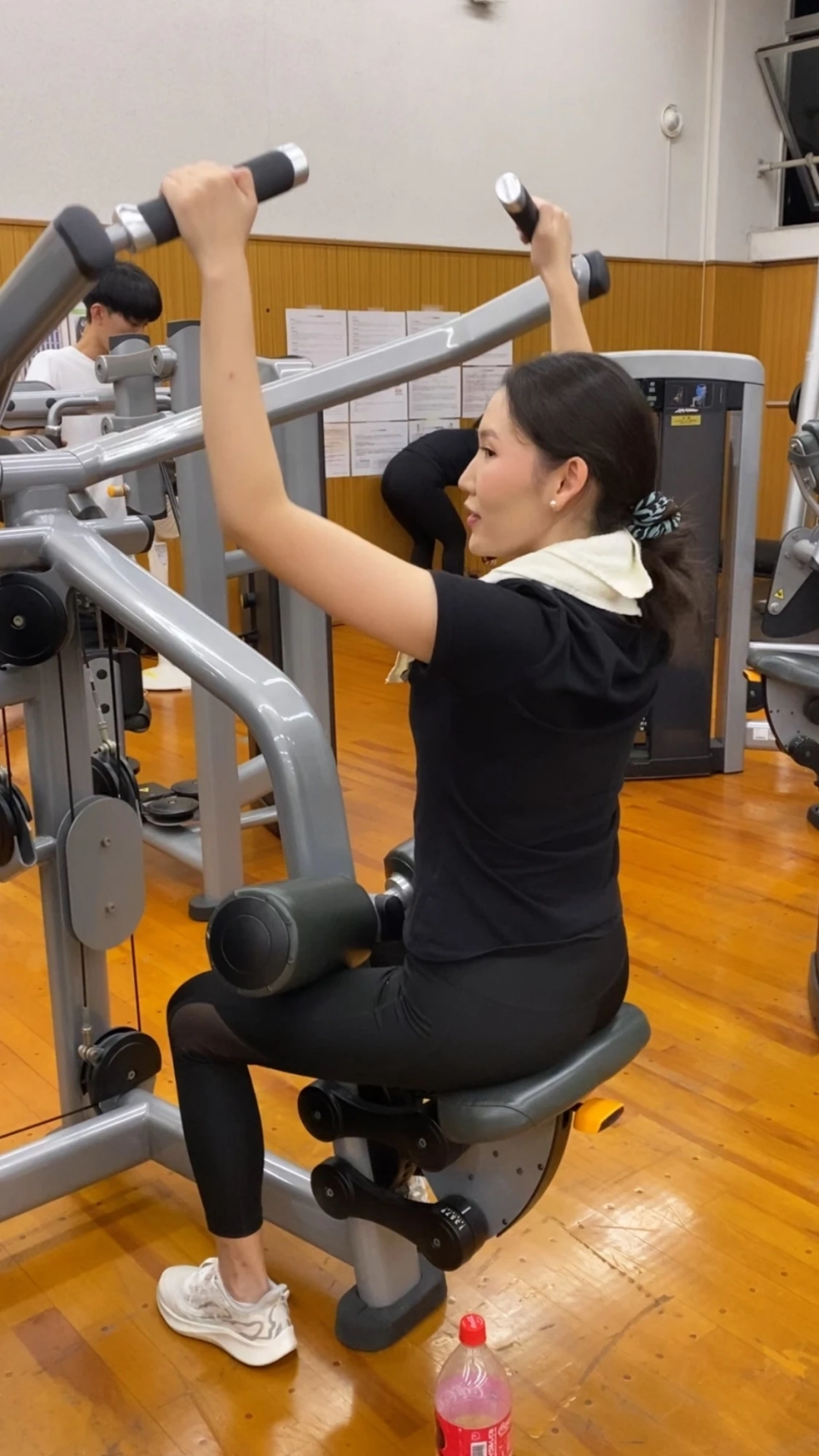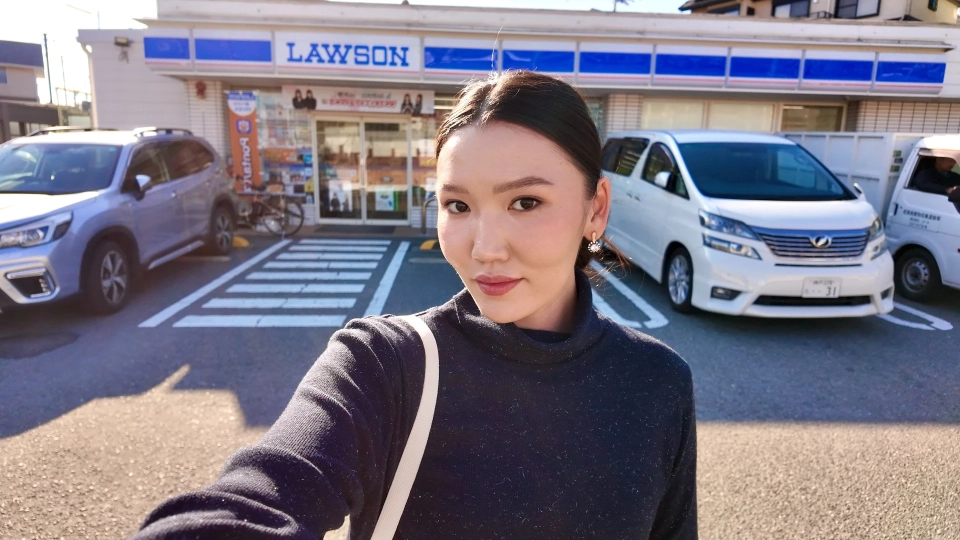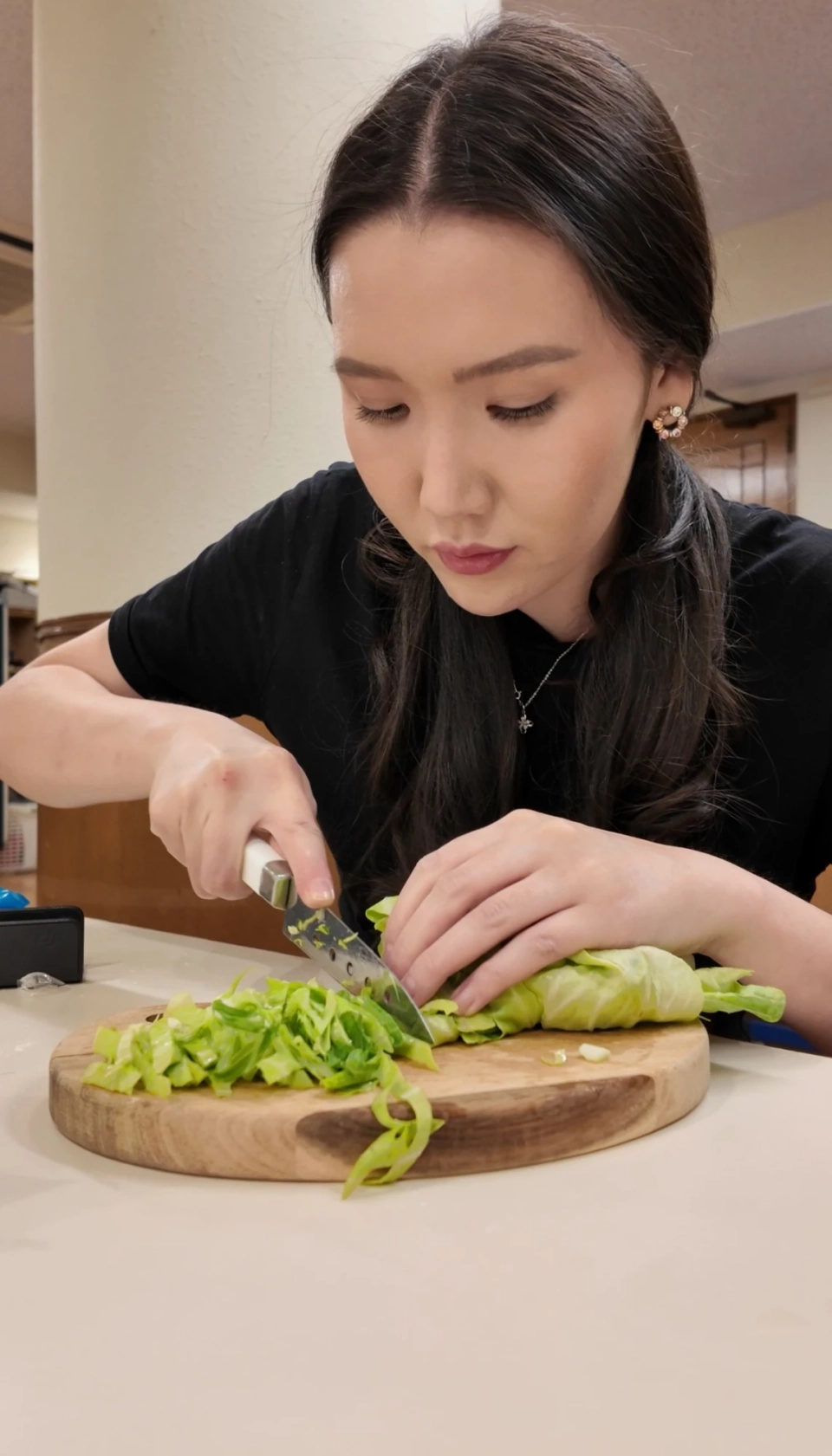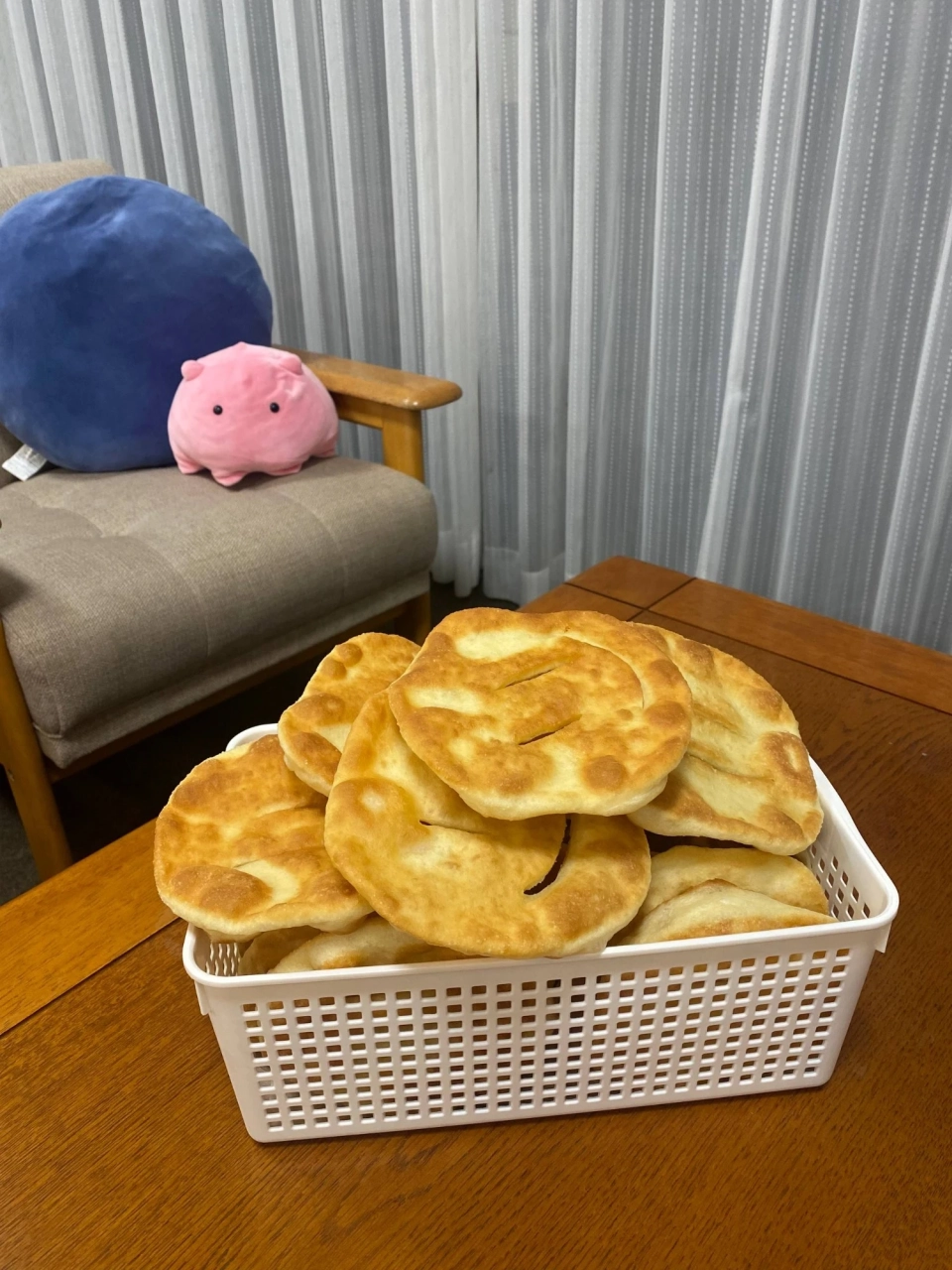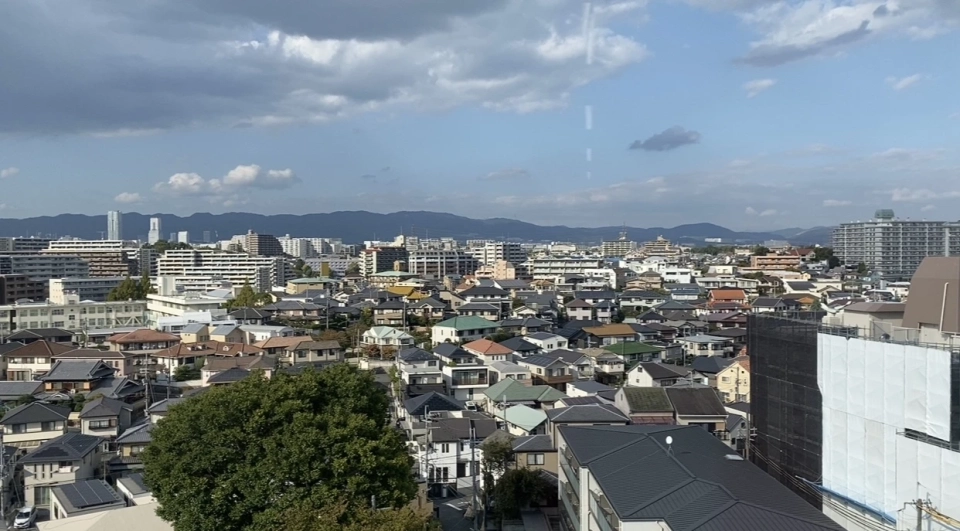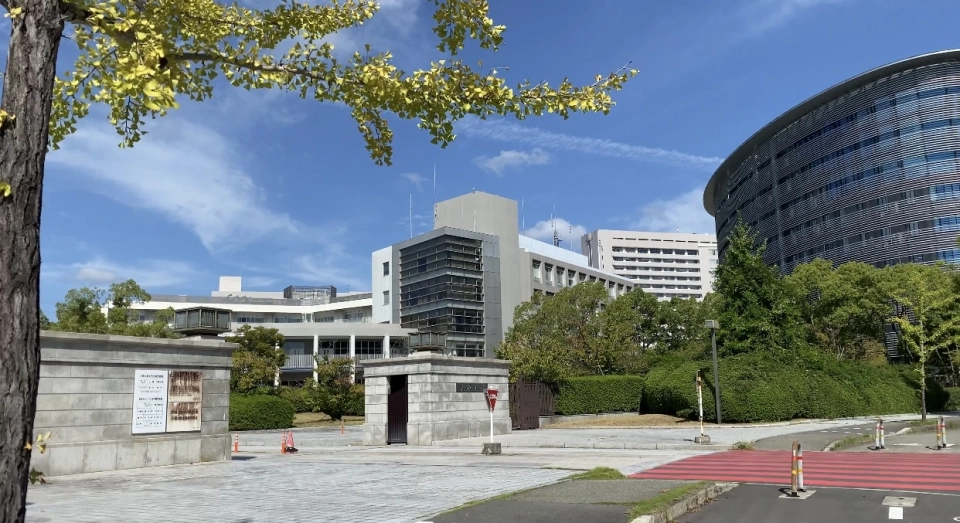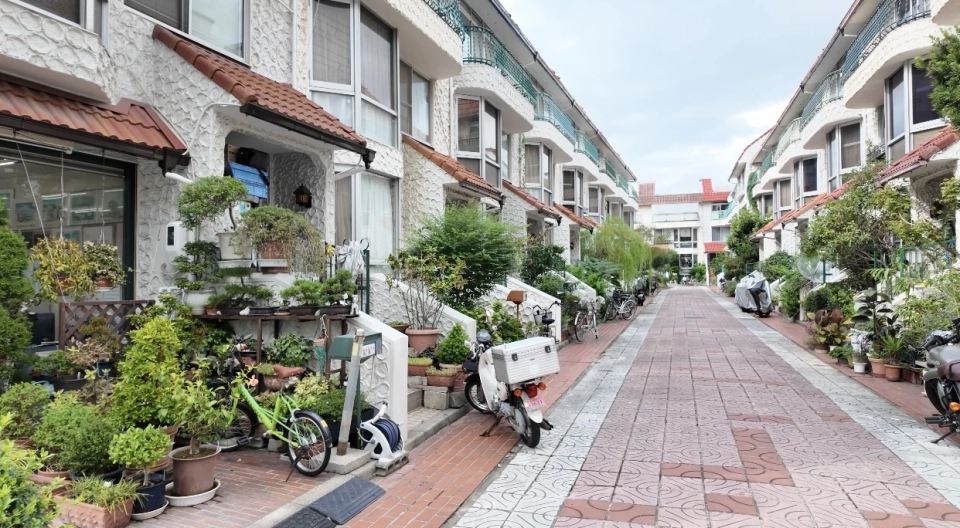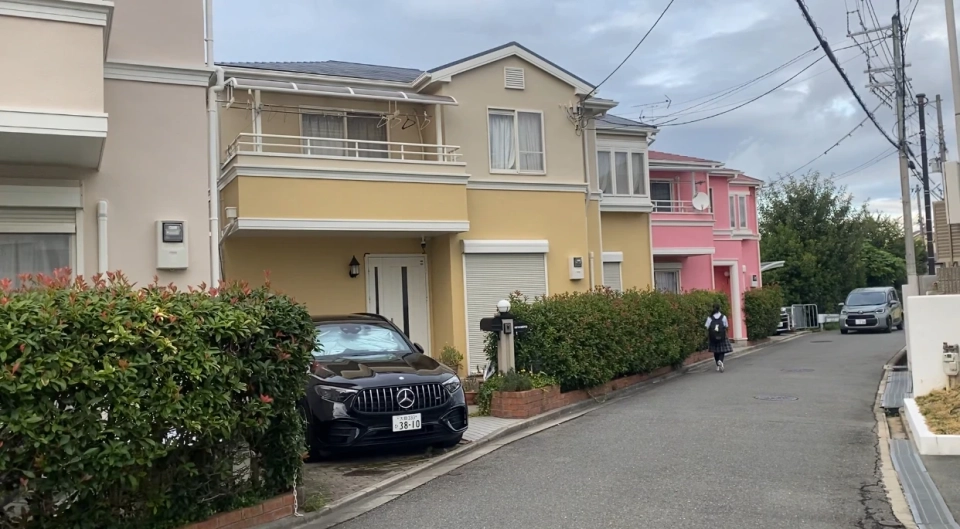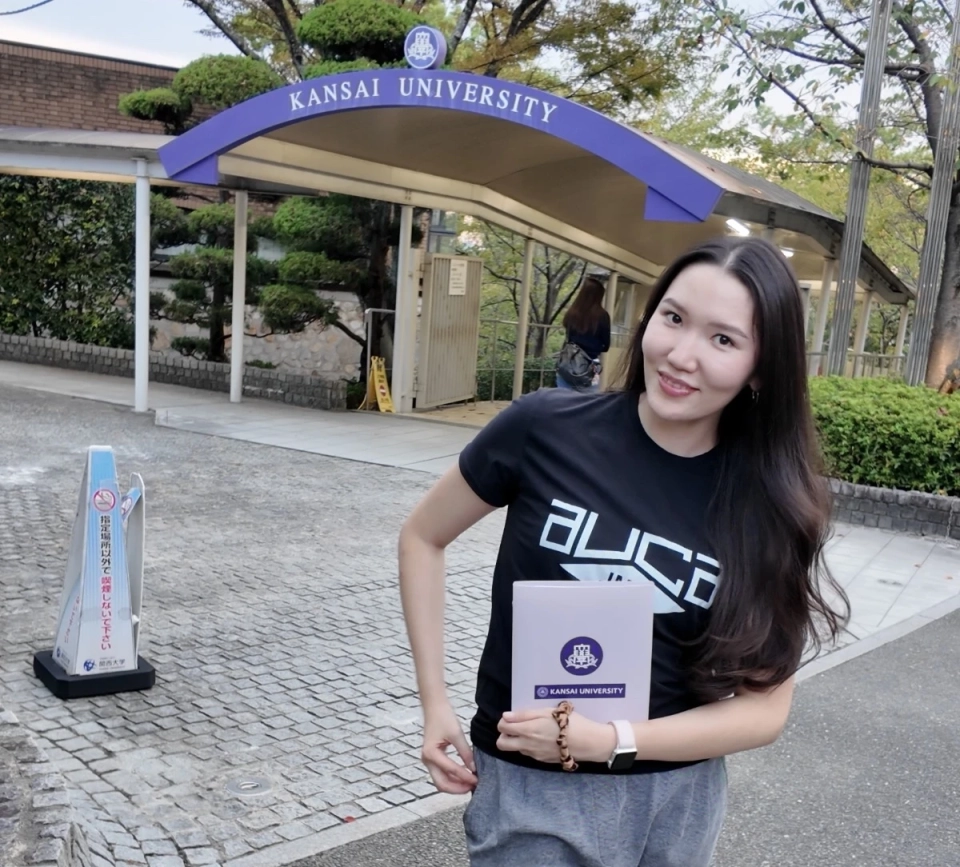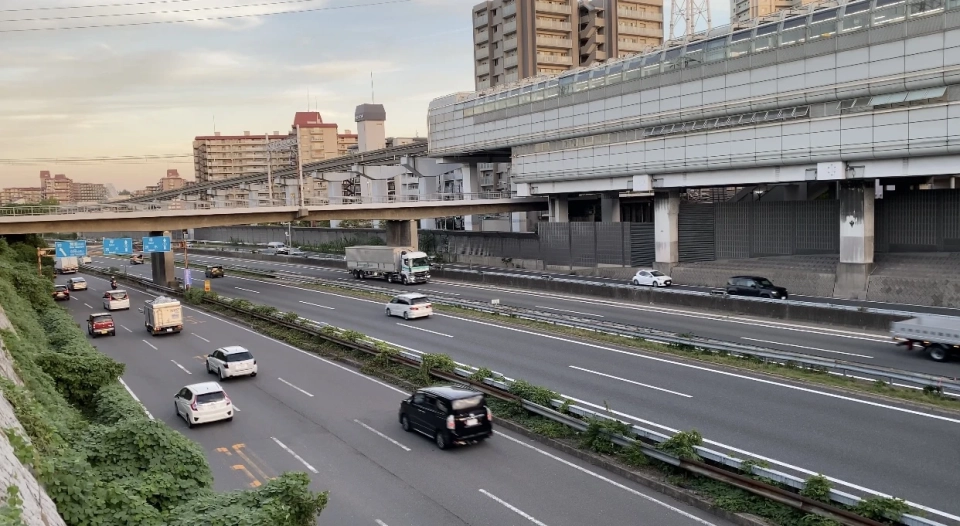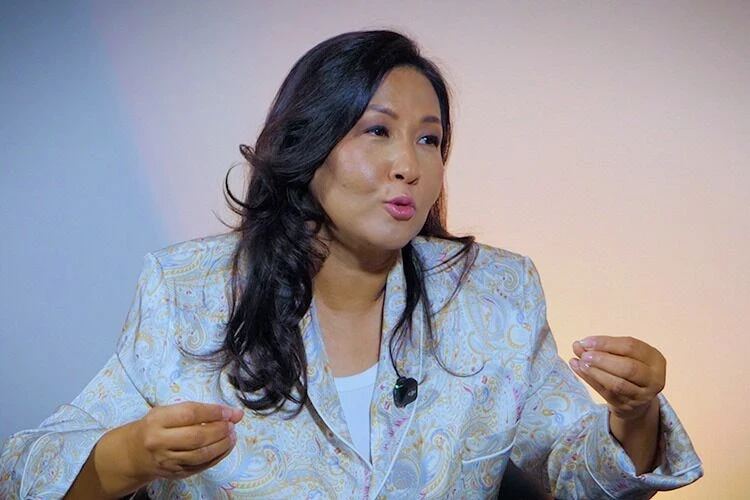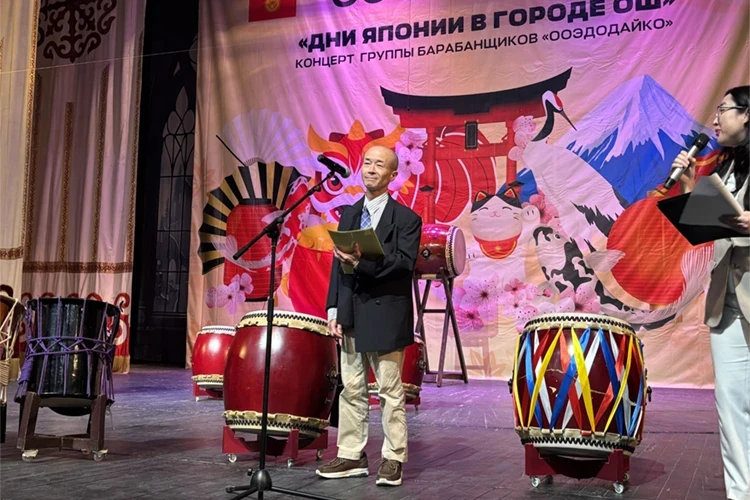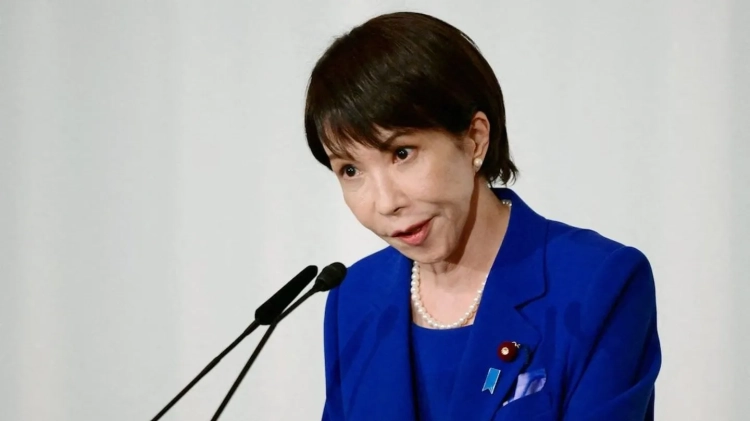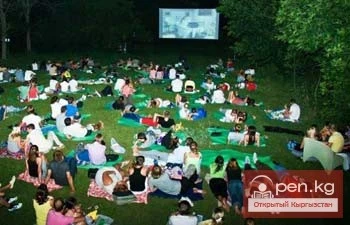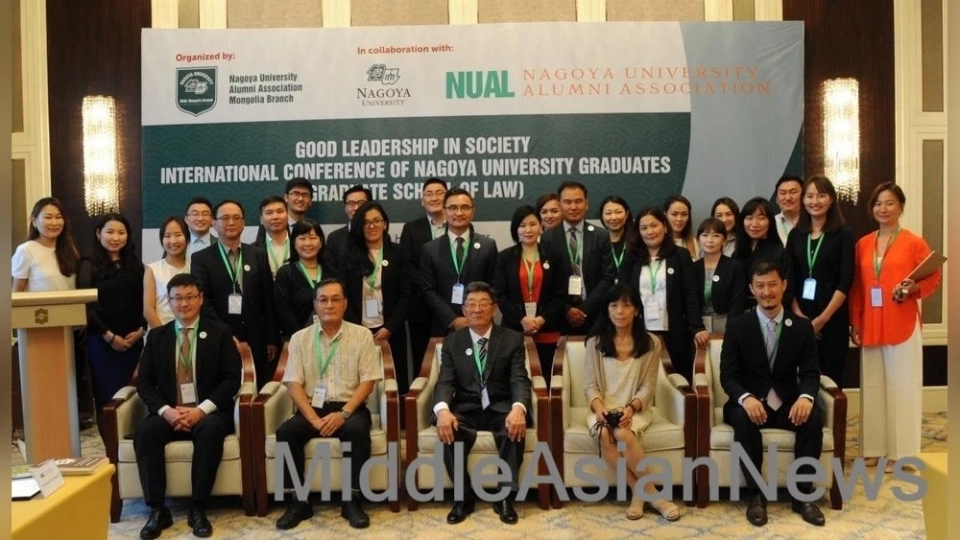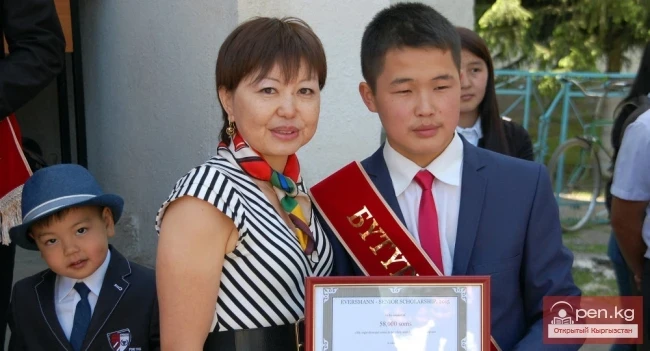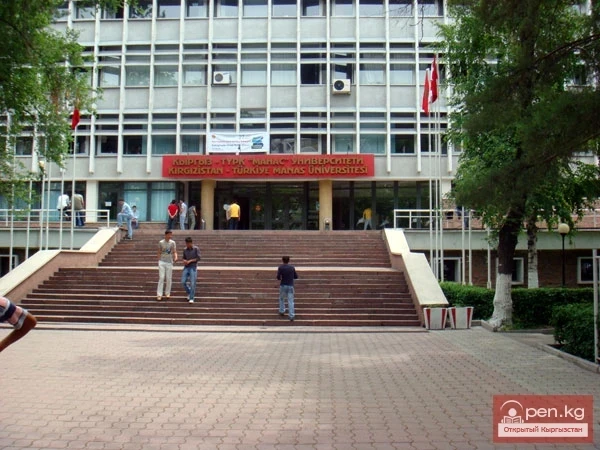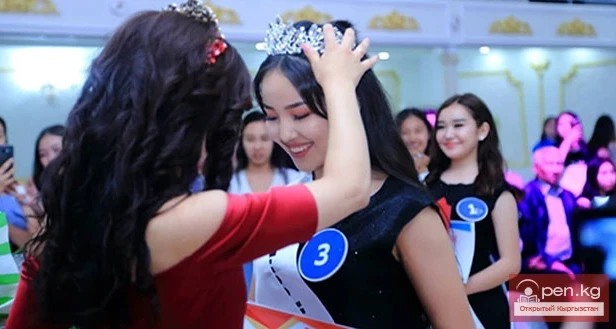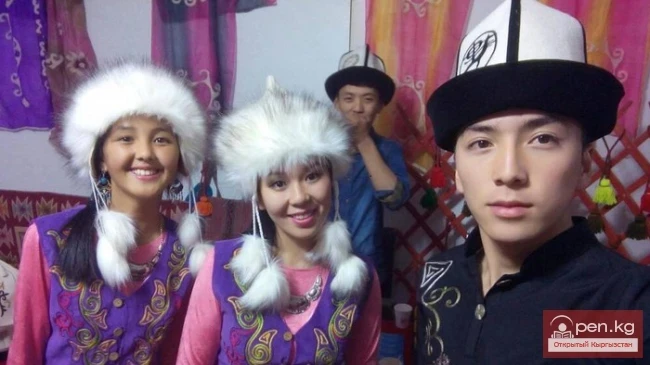In an interview with 24.kg, Aizhan shared her adaptation experience, new habits, and the little joys that make her stay in Japan unique.
— Tell us about yourself.
— My name is Aizhan, I am from Karakol, but I have lived in Bishkek since early childhood. I am the youngest child in the family and graduated from Gymnasium No. 70 with a gold medal, as well as from Shubin Music School, where I learned to play the komuz and piano. After almost two years at KGMA, I decided to change my major and university. In 2023, I scored 227 points on the ORT and received a gold certificate, which allowed me to enroll in AUCA in the Faculty of Journalism and Mass Communications with a full scholarship.
I am married, and my husband also holds a gold ORT certificate.
We are going through life together and are currently continuing our studies at a university in Japan.
Photo of Aizhan Askarbekova
— How did you learn about the exchange program and why did you choose Japan?
— In January 2025, my university opened applications for the exchange program. I applied to three universities — two in South Korea and one in Japan, Kansai University, where I eventually got accepted. I chose Japan because I have dreamed of visiting this country since childhood, which is unique in its cultural heritage.
— Is it true that Japanese students are very disciplined and always arrive on time?
— Yes, local students come to class a few minutes before the lessons start. This discipline is characteristic not only of students but of all people in Japan. It is customary here to arrive for meetings 10-15 minutes early, and planned events are communicated in advance.
Photo of Aizhan Askarbekova
Classes take place in large auditoriums, where 25 to 100 students study simultaneously. The university is huge, with four campuses in Osaka and 3,000 students, of which about 1,500 are international. Everything here is organized and functions efficiently, and there is a solution provided for every situation.
— How does the education system in Japan differ from that in Kyrgyzstan?[/b>
— In the month of studying, I noticed three main differences. First, there is an emphasis on group work here — all lessons include team assignments, and even in classrooms, students are seated in groups. This perhaps makes it easier to work with a large number of students and helps develop collectivism.
Secondly, in Japan, the connection between professors and students is not as close as in Kyrgyzstan. In domestic universities, I am sure most teachers know their students by face and remember their stories. Here, however, the relationships are more formal, with an emphasis on hierarchy.
The third difference is that great importance is placed on sports clubs and collective activities. The university has a well-developed sports infrastructure: there is a huge stadium, an Olympic swimming pool, and sports grounds. For example, at Kansai University, there is a sports association — Kaisers, whose members are selected strictly and are respected among students and faculty.
[b]— How did your first weeks after arrival go? [/b>
— I arrived three weeks before the start of classes. The first few days were interesting as I was able to get acquainted with Osaka, exploring the city and its culture. I did not experience culture shock, as I had studied everything about Japan and Osaka in advance.
[b]— What difficulties have you encountered in everyday life?
— I have difficulties with orientation at subway stations and still get confused. Sometimes it’s challenging due to the lack of knowledge of the Japanese language, and I have to constantly use a translator. Additionally, Japan has strict waste separation, but convenient conditions have been created for this — special containers for each type of waste with clear signs.
You get used to it, and soon you don’t want to throw everything in one pile; you start to think about the amount of waste.
There are many umbrellas here — at every store, café, or hotel, there are stands with free umbrellas that you can take during the rain and return to any other place. This is very convenient, as it rains frequently here.
Photo of Aizhan Askarbekova. Against the backdrop of a famous Japanese grocery store
— What do you think of Japanese cuisine?
— I miss Kyrgyz cuisine and the familiar flavors. That’s the only thing I lack. Beshbarmak, manti, lagman, boorsoks — I think about them several times a week. It’s good that I know how to cook and fry boorsoks once a week. Japanese food is also delicious, but of course, it has its unique flavors and aromas. Everything I have tried here is very tasty.
— What do you like about Japanese culture?
— What I particularly like about Japan is the tranquility and moderation. People treat each other with respect, do not interfere, do not make noise on public transport, and observe queues. At the university, students, regardless of the number, line up to enter the elevator. Japanese people are very friendly and show interest in foreigners, always asking where I am from and why I chose Japan. I am pleasantly surprised that many know about Kyrgyzstan. I have made friends from Armenia, France, Japan, and Korea.
— What places have you visited so far?[/b>
— So far, I have not traveled outside Osaka, but I plan to do so during the upcoming long weekend or in winter. Every corner of the city looks like a fairy tale, and I never cease to admire it. I hope to see many beautiful places throughout Japan.
Photo of Aizhan Askarbekova
[b]— Do you have a dream destination that you haven't visited yet but really want to?[/b>
— While studying Japan in Kyrgyzstan, I made a list of places I want to visit: castles, the bamboo grove in Kyoto, deer in Nara, famous shopping centers, and amusement parks. My dreams include Universal Park in Osaka and Tokyo Disneyland. I dream of visiting there, meeting my favorite characters, and enjoying the rides. My friends and I have planned a trip to these parks at the end of November, and I am already looking forward to it!
[b] — What amazes you the most about Japanese culture?[/b>
— I am struck by the tranquility of the people and their calm, unhurried lifestyle. Japanese people adhere to the principle of "not causing harm to others" in everyday life, which is reflected in their behavior — they never litter, do not make noise on public transport, and always observe queues.
Moreover, Japanese people know how to create beauty around them. Just look at how they decorate their homes and yards: beautiful signs on doors, wreaths, and decorated fences. Overall, the cities look beautiful, with plenty of greenery and flowers everywhere.
[b] — Are there any traditions that surprised you?[/b>
— I noticed one interesting feature: many Japanese women walk with a pigeon-toed gait. This is considered cute. They also often change their voice to a higher pitch, creating an impression of "cuteness." It’s amusing and unusual.
[b] — How do Japanese people feel about their traditions?[/b>
— Japanese people highly value their traditions and treat them with respect. My husband recently attended a traditional festival and was impressed by how Japanese people prepare for such events — usually, they participate as a family. They develop a respectful attitude towards their customs from childhood.
Photo of Aizhan Askarbekova
There were interesting cases: among the foreign students, a recruitment was announced for temporary work — distributing bamboo sticks at the temple during the festival. I was not accepted because only unmarried girls can participate due to historical nuances. Although this may seem trivial, such details are very important to the Japanese.
[b] — How closely does Japan match the image portrayed in anime and films?
— Japan largely corresponds to its image in movies. It’s hard to confuse it with another country. Many stereotypes are justified: trains run exactly on schedule, there are almost no trash cans, and corporate workers often take Fridays off. Of course, there are also underprivileged areas with homeless people. I have encountered rude behavior, but that is more the exception. Overall, I understand that not everything is as perfect as it seems at first glance.
[b] — How have you changed since moving?[/b>
— I have become less anxious on the roads. Here, the drivers are reasonable and follow the rules, and public transport is convenient: you always know when your train departs and arrives.
Photo of Aizhan Askarbekova
My husband and I are far from home, do not know the Japanese language, and are learning to solve problems on our own. We are learning to ask for help, accept refusals, and adapt to the pace of big cities.
Life away from home has made me more mature and made me think about the future.
There are days when my husband and I share one ramen on our last money, and there are days when we can afford to have dinner at a restaurant. I rejoice in our first earnings and small purchases. My husband and I have grown closer and support each other in everything. You can feel how our care for each other has changed — after all, we are the only relatives for each other here.
[b] — What advice would you give to those who want to go on an exchange but are afraid?[/b>
— Fear arises from the unknown. If you are afraid, it means you lack knowledge. Figure out what exactly you are afraid of and fill those gaps. Living in another country and culture as a student is a unique opportunity. Tourism, work, or earning money is one thing, but studying abroad is completely different. Understand how important this moment is in your life.
